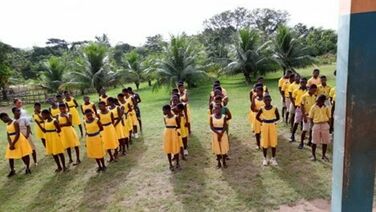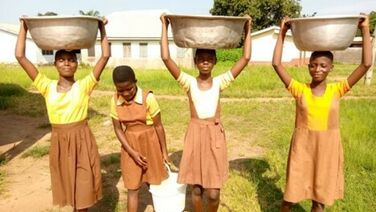
Awudome Avenui School
Awudome Avenui is a rural community situated in Ghana's Volta region. It has an approximate population of 4,500. Subsistence farming, trading, and hunting are the primary economic activities in the area. The residents are known for their friendliness and hospitality. The Awudome Avenui community school, founded in 1948 through a collaboration between the Government of Ghana and the local community, has seen little major development from the government since its inception. Consequently, community members regularly unite to provide support for the school via communal labor, often with the assistance of various organizations. The school currently has a population of 100 students, ranging from grade 7 to grade 9.

Saviefe Deme Community School
Saviefe Deme is a rural community located in the Volta region of Ghana and has a population of approximately 3,100 people. The major economic activity in the community is subsistent farming, trading, and hunting. The people are very friendly and accommodating. Saviefe Deme Community School was established in 1964 by the Government of Ghana in partnership with the community. The school has not received any major development from the government since its establishment, so the community members always come together to support the school through communal labor with the support of other organizations. Being the only school in the area, the school currently has 150 students ranging from kindergarten to grade 9.

Adaklu Torda School
Adaklu Torda is a rural community situated in the Volta region of Ghana, with a population of approximately 4,100. The primary economic activities in the area include subsistence farming, trading, and hunting. The residents are known for their friendliness and hospitality.The Adaklu Torda community school was founded in 1962 through a collaboration between the Government of Ghana and the local community. Since its inception, the school has seen little major development from the government, prompting community members to regularly unite and contribute to the school's support through communal labor, alongside assistance from various organizations. The current school population is 280, ranging from kindergarten through ninth grade.